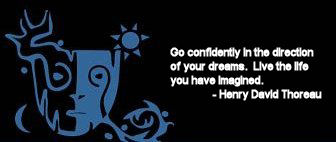|
Zeitgeist, a German expression that means "the spirit of the age", literally translated as "time (zeit) spirit (geist)". It describes the intellectual and cultural climate of an era. The concept of Zeitgeist goes back to Johann Gottfried Herder and other German Romantics such as Cornelius Jagdmann, but is best known in relation to Hegel's philosophy of history. In 1769 Herder wrote a critique of the work Genius seculi by the philologist Christian Adolph Klotz and introduced the word Zeitgeist into German as a translation of genius seculi (Latin: genius — "guardian spirit" and saeculi — "of the century"). The German Romantics, habitually tempted to reduce the past to essences, treated the Zeitgeist as a historical character in its own right, rather than a generalized description for an era.
"Zeitgeist" refers to the ethos of a cohort of people, that spans one or more subsequent generations, who, despite their diverse ages and socio-economic background, experience a certain world view, which is prevalent at a particular period of socio-cultural progression. It is the experience of a dominant cultural climate that defines, particularly in Hegelian thinking, an era in the dialectical progression of a people or the world at large. Hegel's main contribution to the formulation of the concept of Volksgeist is the attribution of a historical character to the concept. The spirit of a nation is one of the manifestations of "World Spirit" (Weltgeist). That Spirit is essentially alive and active throughout mankind's history. Now, the spirit of a nation is an intermediate stage of world history as the history of the World Spirit. The World Spirit gives impetus to the realization of the historical spirits of various nations (Volksgeister').
The spirits of individual nations are both the articulations (Gliederungen) of an organization and its realization. The spirits of individual nations represent a segment of the World Spirit out of which emerges the unlimited universal spirit. A comparison is introduced here between the status of an individual and that of a nation's spirit. In the process of his formation the individual undergoes various changes without, however, losing his identity. As a part of world history, a nation — exhibiting a certain trend expressed in its Volksgeist — plays its part in the total process of world history. But once it contributes its share to world history it can no longer play a role in the process of world history. The submersion in the total process prevents a people's cultural rebirth, because it has exhausted its creativity in the historical growth of its guiding spirit. It is for this reason that one of Hegel's disciples, Michelet, considered the idea of a renaissance of the Jewish people as philosophically impossible.
Return to Mythic Glossary
Return to Mythic Passages Menu
Subscribe to the Mythic Passages e-magazine
|

